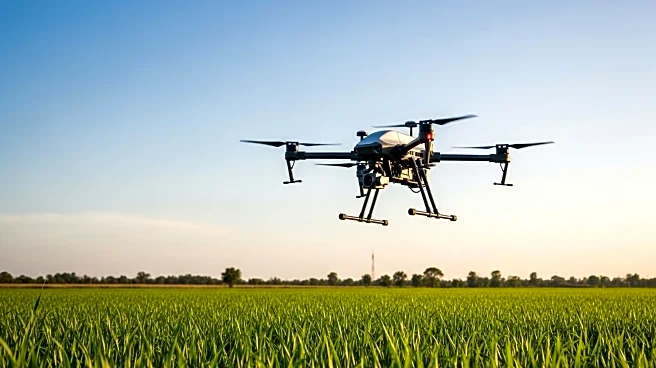What's Happening?
Degas Limited, a Japanese agriculture fintech company, has committed to investing $100 million over the next four years to establish Ghana as Africa's first AI-powered agricultural hub. This initiative aims to expand a model that has already financed over 86,000 smallholder farmers across 122,000 acres nationwide. The investment will focus on scaling AI-driven satellite monitoring and precision agriculture techniques to boost yields, reduce risks, and provide fairly priced finance to farmers. The announcement was made by Doga Makiura, CEO and founder of Degas Limited, during a meeting with President John Dramani Mahama at the Ghana Presidential Investment Forum.
Why It's Important?
This investment is significant as it aims to enhance food security and create jobs in rural communities by leveraging AI and precision technologies. By improving productivity and integrating agricultural value chains, the initiative seeks to connect farmers to markets, finance, storage, and processing. The approach aligns with Japan's interest in scalable partnerships and is considered a 'gold standard' for agricultural investment in Africa. The project promises to double farmers' incomes and maintain a high repayment rate, which could serve as a model for other regions.
What's Next?
The funding will support the expansion of Degas' farmer financing, satellite-enabled crop monitoring, and precision agronomy services. It will also deepen partnerships across input supply, logistics, and offtake to strengthen local value chains. Degas plans to continue collecting data across the full value chain using its proprietary mobile app, which will help compute farmer credit scores and optimize operations. The initiative is expected to create dignified jobs for youth across rural communities and improve overall agricultural productivity.
Beyond the Headlines
The investment by Degas Limited highlights the growing interest in using technology to transform agriculture in Africa. By focusing on AI and precision agriculture, the initiative could lead to long-term shifts in how agricultural practices are conducted, potentially setting a precedent for other countries to follow. The emphasis on data-driven decisions and end-to-end traceability across the value chain could also enhance transparency and efficiency in the agricultural sector.








